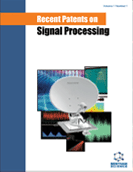Abstract
In this patent, we propose and compare two different relaying strategies in cooperative communications involving channel coding, network coding and turbo decoding in a wireless Ad-Hoc network scenario. A wireless Ad-Hoc Network is a decentralized network where each node can join the cooperative communication as a relay by decoding and forwarding data from other nodes to the destination. In this work multiple nodes send data to the destination with the assistance of a single relay node where the decode-and-forward (DF) protocol is adopted. One relay strategy uses network coding after the relay successfully receives and decodes information frames from all source nodes. The other strategy uses recursive systematic convolutional (RSC) channel coding at the relay for the interleaved, decoded information steams from all source nodes. At the destination, turbo decoding is carried out for both schemes. We show through simulations that both methods have a fast turbo decoding convergence within two or three iterations. The second one provides a better performance when the signal-to-noise ratio in the relay link is relatively high. However, in the case where the relay link is weak, the first one with network coding outperforms. This result indicates that different channel conditions require different relaying strategies and a proper switch between strategies in the relay may improve the overall performance of Ad-Hoc networks.
Keywords: Network coding, channel coding, cooperative communications, relay strategies, recursive systematic convolutional, wireless devices, AD-Hoc wireless networks, network decoding, Multi-node decoder, relay channels, Optimal decoding, convolutional codes, noisy relay, Cooperative communication system, digital communication
 8
8

